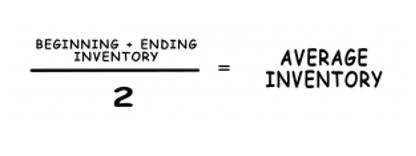
Failure to maintain proper records can lead to penalties, legal disputes, and even the risk of business closure. This encompasses tax returns, receipts, invoices, and other relevant documentation. Accurate tax records are vital for ensuring compliance with tax laws and making tax filing more accessible and less prone to errors. External audits by independent parties can also provide assurance of reliability. Manual recordkeeping is more time-consuming, prone to errors, and less efficient than digital recordkeeping.

Keeping your records secure and private
- Various industries are subject to specific regulations that mandate precise record-keeping.
- By using effective records management systems, businesses and people can ensure that important information is easy to find and get to when needed.
- Integrating spreadsheets with accounting software allows seamless data import/export and enhances overall efficiency.
- Accurate records strengthen the borrower’s credibility and increase the likelihood of loan approval, favorable interest rates, and loan terms.
- This ongoing analysis informs decision-making and helps businesses adapt to changing circumstances.
- Bookkeeping is the systematic process of recording, organizing, and managing a company’s financial transactions.
Various industries are subject to specific regulations that mandate precise record-keeping. Adhering to these regulations helps businesses avoid legal complications and demonstrates their commitment to ethical and responsible management practices. A well-organized document management system can greatly simplify this process, especially for individuals and businesses managing multiple accounts or large amounts of financial information.
What are examples of regulations requiring recordkeeping?
- Hyland’s OnBase helps organizations electronically retrieve, request and track paper records.
- Cash reserves are the liquid assets that a company has available to meet short-term obligations.
- Some software also offers automation features that streamline repetitive tasks, saving time and reducing errors.
- Enrollment in a bookkeeping course is a common pathway for individuals to begin their journey in the field, providing the necessary competencies to perform as a professional bookkeeper.
- It ensures that every financial transaction is recorded in at least two accounts, maintaining the balance between debits and credits.
- Reconciliation is the process of comparing financial records to ensure accuracy and identify discrepancies.
Ensure that your record-keeping procedures are aligned with these requirements and include provisions for regular compliance audits. Define the security measures that must be in place to protect financial records from unauthorised access, data breaches, and physical theft. This might include encryption, secure storage, regular security audits, and training for employees on data protection best practices. As businesses adopt various digital tools and platforms, the need for integrated financial systems will become more pronounced. Integrated systems allow for seamless data sharing across different software applications, reducing the need for manual data entry and minimising bookkeeping the risk of errors.
How does bookkeeping differ from accounting?

Keep personal and business finances separate by maintaining separate bank accounts and credit cards for business expenses. This involves reconciling bank statements, reviewing income and expenses, and ensuring all documents are current and record keeping for small business complete. This includes implementing data security measures such as encryption, access controls, and regular backups to prevent data breaches and loss.

Recording Financial Transactions
- You might want to cut spending on other expenses to maintain your profit level if the increase is necessary.
- The ATO provides a register of software products that support STP reporting, including low-cost options for micro employers.
- Additionally, accurate records support compliance with financial regulations and help with strategic decision-making.
- Bookkeepers begin by collecting source documents, such as receipts, invoices, bank statements, and purchase orders.
- Automation can also improve financial reporting and analysis by generating real-time reports that provide insights into your business’s financial health.
Businesses that embrace change and innovation in their financial record management practices will be better equipped to navigate the challenges and opportunities of the future. This can include using different methods for tracking expenses or not updating records regularly. To avoid this, establish and stick to a transparent, standardised process for recording financial transactions. Periodically review your processes to ensure they remain effective and are followed by everyone in the organisation. To keep financial records updated and reliable, one should develop a regular schedule for updating books, utilize accounting software for accuracy and consistency, and perform regular audits. Implementing internal controls to manage financial processes is also important.

In the digital age, technology plays a critical role in enhancing the accuracy and efficiency of financial management. Organizations leverage cutting-edge tools to automate processes, analyze data, and assure compliance. It requires expertise and tactics to help maintain the organization’s image and help obtain funding and bid the tenders of business.
Establish a standardized format for naming transactions, such as using a combination of dates, vendor Law Firm Accounts Receivable Management names, or transaction descriptions. Consistent naming conventions make searching and retrieving specific transactions easier when needed, saving time and reducing errors. Accurate records ensure transparency and accountability, allowing individuals and organizations to demonstrate compliance with applicable laws and regulations. Professionals in finance and accounting, such as certified public accountants (CPAs) or chartered accountants (CAs), are bound by ethical and professional standards.
- They provide a clear and detailed picture of a company’s financial health, which is crucial for making sound decisions about investments and strategic planning.
- Financial records encompass a range of documents that track a business’s monetary transactions.
- Invoices, contracts, checks, tax documents — all pour in and out of the workplace and require varying lengths of storage.
- Lastly, accurate financial records are instrumental in budgeting and cost control.
Those in the market for a financial records management solution have no shortage of options. There are scores of effective financial document management software solutions on the market. Finally, examine how your document management system (DMS) supports your staff. Take a look at our list of the best document management software for small businesses to learn how they work. SmartVault provides secure, easy-to-use online document storage and management. It can automate document workflows, integrate accounting software, and help meet strict compliance standards.
